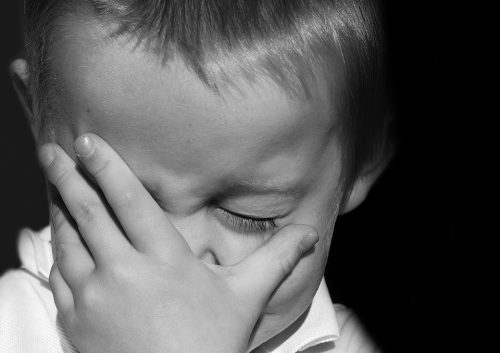
Depression can happen to anyone. No one is exempted, and no one can tell when it’s coming. This can also happen to young people no matter how vibrant they may seem. And that makes it more badly as it affects not only their young lives but also on how they perceive things. However, teen depression comes in with numerous factors with that you need to educate yourself about it.
Parents fighting in front of their kids is one way to increase their depressive moods. So for parents, please, don’t argue when the kids are there. This can affect their learning state and also their mental health condition. (It can also lessen your marital bond. If possible, discuss your problems peacefully and attempt for a positive solution.) According to Michael J. Meaney Ph.D., “Depression occurs in 1-2% of children before puberty.You can even see depression in preschoolers, although it’s much less common.”
Moving on, below are some strategies that can help deal with teenage depression.
Foster A Supportive Classroom
Create an environment that is comfortable and open to the teenager with depression. Also, make sure that someone cares about him by always checking on him all throughout. The checking can be done during breaks and even through emails or by any means the teenager can have access. Such is essential so that the teenager won’t feel alone but feel supported instead.
In the classroom, it is essential that these depressed teens be recognized with their strengths to boost their self-esteem. Students with depression should be given enough time with their tasks and should be encouraged more often. Also, it would also help them if the teachers give them lighter load tasks and support from teachers to be more open.
Screen Regularly For Depression

Schools should do regular depression screening on their students to identify those who have one. They can do the testing through questionnaires. This is necessary to address the problem at once and prevent it from getting worse. Doing this regularly is recommended since no one can tell when the said condition occurs explicitly.
Implement An Anti-Bullying Program
Anti-bullying programs should be encouraged and implemented in schools. This will not only protect teens with depression but the whole student community as well. The teachers, school personnel and the students itself should be oriented appropriately about bullying to prevent this problem.
Romeo Vitelli Ph.D. warns that, “Schools need to be more careful in monitoring for bullying behaviour, before and especially after anti-bullying activities. Teachers need to be aware that bullying may well become after an anti-bullying presentation and extra vigilance is more important than ever.”
Bullying should be prevented to protect teens with depression problems. It can further dampen their self-esteem which may lead to much worse depression.
Teach Strategies For Mindfulness And Managing Stress
Students with depression should be taught how to manage their emotions. They should be shown how to express themselves openly and should have an identified confidant. Other than that, make sure he knows that school personnel like the guidance counselor is always available to be of help.
Other than that, it is also best that teens with depression should be educated about their condition as well. Topics on how the human mind works, the factors that trigger depression, and how to overcome the disorder should be made known. As for the teachers, strategies on how to handle these students must be regulated.
Emphasize Curiosity, Engaged Learning, And Problem Solving

Make your teaching strategies exciting to encourage curiosity in the students’ part. Making lessons exciting will allow the students to explore and tackle their task and get their minds off the things that trigger their depression.
In Closing
Eugene Rubin M.D., Ph.D., says that “Hopefully, early treatment will lead to diminished risk of depression or other psychiatric disorders when the children are adolescents or adults. This would be a great outcome and would highlight the importance of early intervention.”
The strategies mentioned above are not a guarantee to completely overcome depression. However, these can be of help to some extent. Still, it is recommended that these teens should see and get professional help from trained counselors or therapists.